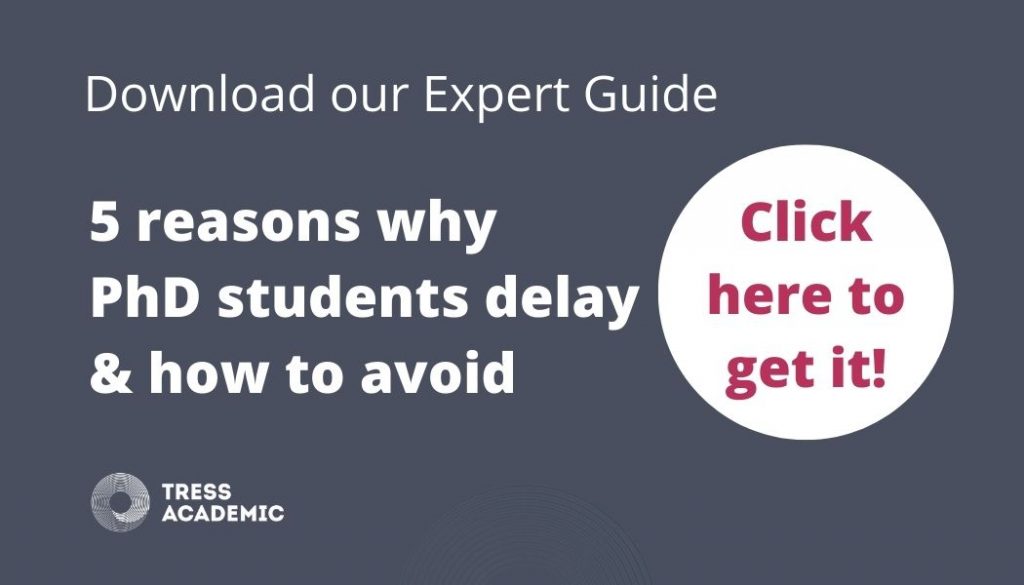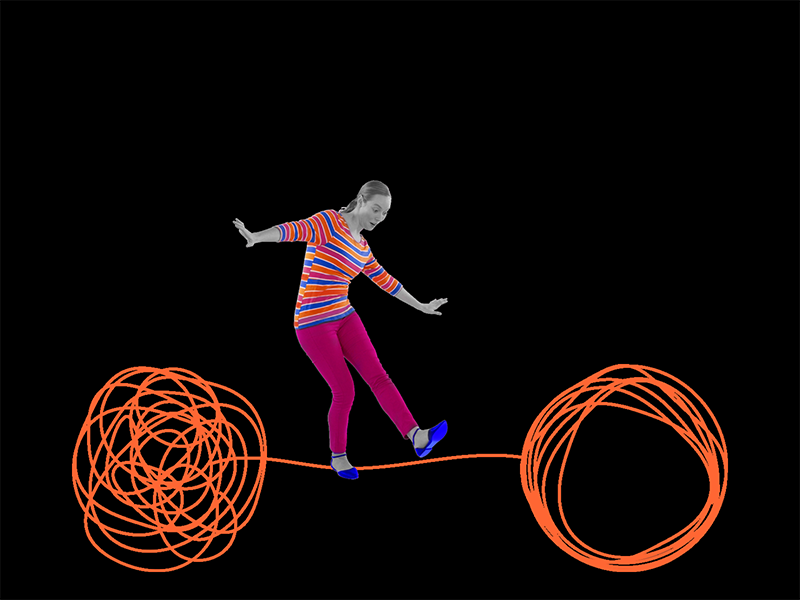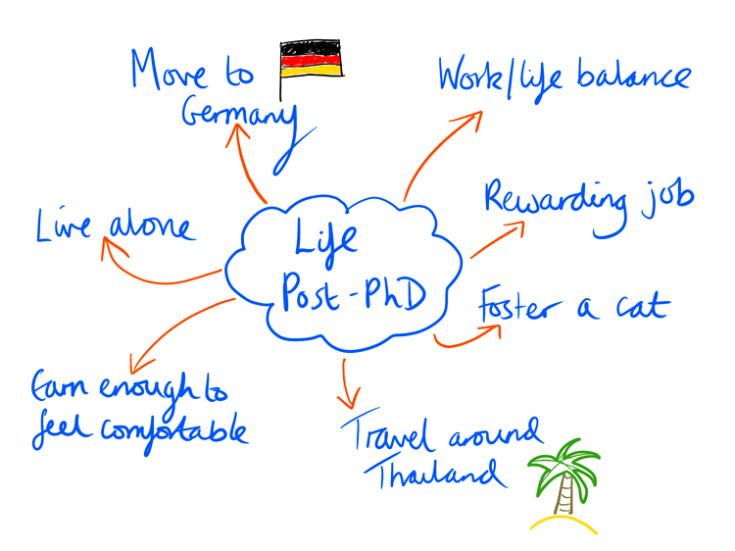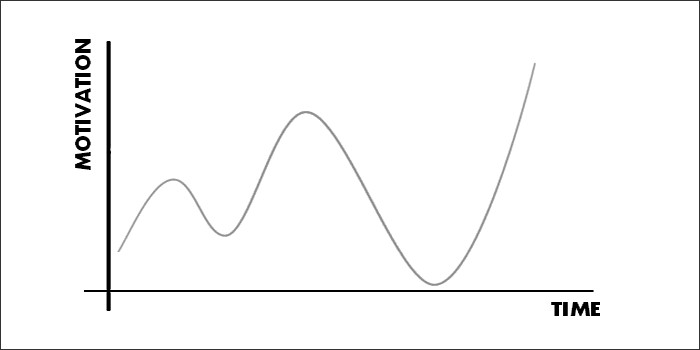
Useful tools and energy for knowledge driven people
Productivity – Starting a business – Parenting – Society

Six lessons for PhD students

I started my PhD without realising what it was and what drove me in the first place. To be honest, there was just a sudden opportunity and I did not have a clear view on other career opportunities . Neither did I proactively develop those. The road towards a PhD is bumpy, especially in the beginning.
Talking to other (former) PhD students, many of them started similarly and face similar challenges. One of them is Marjolein, a good friend and former Ghent University colleague. PS: Marjolein is the UGent nominee for a prestigious New Scientist pize .
Marjolein: “My master’s thesis made me realise I liked research, so I wanted to continue doing it. I knew I would have to pursue a PhD but didn’t have the scores (and was to late) to apply for personal funding. Luckily a friend brought me into contact with my supervisor just at the right time. I thought ‘even if this never turns into a PhD, at least I will gain some useful experience for my further career.”
I nearly quit in the first year
I still remember the first meetings with my supervisors, and I still have the notes. 3 things became clear:
- I didn’t know a f*** about my research domain
- I only understood 10% of what was discussed during the meeting
- My notes were really poor
At the end of the first year I did not feel the progress I made, and I saw my contemporaries starting successful ‘real jobs’. I lost a big deal of the initial motivation and was considering to quit… until that first paper got accepted.
Inexperience and lack of knowledge combined with the lack of tangible results is a major hurdle in the first year of the PhD. Get over it and don’t be afraid to talk to your more experienced colleagues. Everyone has been there!
If you just started out, you might recognise the situation. Simultaneously, you might not realise that this will all change drastically during the coming years. So apparently over 4 years I learned:
- a lot about my research domain, with people starting to ask me questions
- to manage and structurize information flows ( How? Here’s a post on that )
- to put into perspective failures and challenges along the road
So from this I derived the following rule:
If you understand less than 50% of what’s being said in meetings, if you think the people around you are much smarter, and you’re struggling with information, be happy: you’re probably learning.
I printed 50 outdated papers in my first week
At the start of my PhD, I experienced total chaos. Where to start reading? What to do first? Am I actually smart enough? The other researchers seemed smarter and were progressing, waw.
The questions and thoughts are just overwhelming. Do you know how I started my first week? I decided to print some papers to learn about my topic by reading myself to dead. So I thought: let’s go chronologically and print the oldest ones first starting in the 70s or so. While not realising I had to print 1000s of papers, I started with a whole pile of around 50. Bad English combined with a lack of understanding made things worse, making me read papers twice or more, very slowly. After one week I gave up and got rid of a few kilograms of paper. Something was not working.
Marjolein has a similar experience: “I started out on a project but with the intention to apply for a personal scholarship along the way. So I started reading and preparing the best I could. Often however, just getting started and trying and failing in the (virtual) lab will teach you so much more than trying to master theory first. This is one of the most important lessons I try to convey to the students I guide today as well.”
This makes me think of Ray Dalio’s quote (I was reading his book ‘Principles’):
The satisfaction of success doesn’t come from achieving your goals, but from struggling well.
Here’s the point:
Although it might seem there is a plan, most often there is none. At first I did not realise I was in charge of making the plan, and not my supervisors. A plan allows you to struggle well .
Then things started changing
This is how I think my confidence/motivational curve looked like over 4 years of PhD and Marjolein’s curve is very similar:

Everyone has a specific curve, for example I had (former) PhD students telling me they were dying in year 2, and not everyone has 4 years. However, I guess the following phases can be distinguished:
- Phase 1 – Dying : you start rather motivated, but very quickly you realise that knowledge, structure and experience are missing. You are like a chicken without a head seeing only one thing: limited tangible progress.
- Phase 2 – Surviving: You tend to stay in the race and feel some personal improvement. However, you are not yet skilled enough to make a lot of progress. You still face a lot of ups and downs, but the minima and maxima might become less extreme. You might publish a paper.
- Phase 3 – Progressing: You are most likely able to publish a paper that is largely based on own ideas or initiative. This further boosts your confidence. You go to conferences more confidently and can start telling about your research.
- Phase 4: Accelerating: You might call yourself a researcher with a real job. Others are now asking you questions, and you are able to help them. You also become more able to develop a vision. And most important: likely you start thinking about life and your career…
Marjolein: “Somewhere between phase 3 and phase 4, you are most likely taking up some peripheral tasks as well, such as guiding masterstudents or starting PhD students, organising team activities or conferences, managing part of the lab, … these tasks provide a very important sense of fulfilment outside of your research that can help you handle the ups and downs your research will bring.”

Marjolein and me at a young professional conference we organised together. Most of the organisers were PhD students.
Six Major recommendations
- Set some goals . Goals force you to develop vision and to prioritize. Making the perfect plan is difficult, but you should do some effort. Also boost your productivity using some simple tricks .
- Write a review paper your first year (tangible output!) and start reading the most recent papers published in good journals (learning). Read review papers (understandable).
- Go to a (specialist) conference in your first year , even if you’re not able to present (if the money is available, I think your supervisor should allow it)
- Reach out and build your network within and outside your university. You might need it later. Also read outside your discipline.
- Talk to industry, if possible and think about the WHY (in terms of impact) of your research. Never -NEVER- alienate from the ‘real world’ . And realise that you have rather unique (valorisable) knowledge.
- Talk to peers and don’t be afraid to ask for their help and experiences in their own PhD. You’ll notice everyone goes through the same things and will find comfort and trust in this.
Why it’s all worth the effort
After my PhD my career evolved a lot. But I’m still driving on science. I’m now running a Ghent University spinoff company in which I’m valorising university IP. I’m thriving on the network I built. You should find out in which environment you’ll thrive .
Marjolein now is a successful scientist solving our water problems. But even more important: she inspires many and connects people while mentoring young scientists.
A PhD will not only bring you research skills, but so much more that you can employ in your further career. On why you should persist, and which opportunities exist, I will tell more in a future blog post. Share if you like and subscribe.
Thanks to our guest blogger Marjolein Vanoppen

Leave a Reply Cancel reply
This site uses Akismet to reduce spam. Learn how your comment data is processed .
Follow Sciencepreneurship
Subscribe to blog via email.
Enter your email address to subscribe to Sciencepreneurship.com and receive notifications of new posts by email.
Email Address
Recent Posts
- Start with a good foundation for your business – there’s time to build a fancy city
- The pain and power of being challenged by peers
- The enlightment
Powered by WordPress.com .
Discover more from Useful tools and energy for knowledge driven people
Subscribe now to keep reading and get access to the full archive.
Type your email…
Continue reading
- Skip to primary navigation
- Skip to main content
- Skip to footer
Tress Academic

#35: PhD motivation running low? Here’s the cure!
December 10, 2019 by Tress Academic
Is it getting harder to be excited about your PhD? Perhaps you struggle to find the enthusiasm to start another work day – especially when nothing seems to be going your way. You might be suffering from one of the most common syndromes among PhD students: a lack of motivation. Although it may feel like your work is coming to standstill, DON’T BE FOOLED! There are many ways to get your motivation to come out of hiding, if you know what caused it disappear in the first place! We’ll help you to understand the causes and the cures for the motivational slumps, so you can stay on track and keep smiling until your PhD is in the bag!
Make no mistake, the PhD is a very demanding period of your life. You’re working on many difficult tasks, always aware that things can go wrong, with supervisors who all have high expectations, and dish out heavy criticism whenever they sense a momentary slip-up. Many different tasks demand your attention at any given moment; like working out your research project, experimenting, analysing data, and apart from all of that, you still must attend your graduate courses, present at conferences, and publish your results! That’s a lot to tackle alongside a high workload. So it comes as no surprise if this adds up to you feeling demotivated every now and then. Rest assured, no PhD student is super motivated and happy all the time. The ups and downs are just a part of the entire PhD process.
Motivation changes over time
It’s normal that motivational levels of PhD students naturally change over time. We see a lot of PhD students at the very beginning of our course “Completing your PhD successfully on time” that are walking on sunshine in the first weeks of their PhD! When they’re asked to rate their satisfaction with their PhD, they’re close to 100% because they’re just so happy that they got the chance to do a PhD, after receiving a grant or scholarship or successfully beat other competitors for a PhD position, that they feel a bit like they won the lottery!
Was it the same for you in the beginning? Well, then you also know that the feeling does not last. Because after a while, reality kicks in and you realise that not everything is as perfect as it seemed at first. This is often when one’s motivation starts to adjust to a normal level, but is still pretty stable. Later into the PhD, your motivation often continues to shrink. This is when there’s still an awful lot of work to do, with difficulties creeping up all around and no end in sight. But guess what? As the day of your submission approaches (even if it is still in the distant future), motivation often picks up again, once you start to gain confidence with the results of your research, or get your first papers published and a general feeling of – I’ll probably get through this one day – begins to sink in!
Don’t let low motivation drag you down
Apart from this usual fluctuation tendency in a PhD, low motivation is always a warning sign from your psyche telling you ‘uh oh something’s wrong here’ – so don’t ignore it.
It is very important to spot the early signs of low motivation, because at this stage, you can do a lot to get out of it quickly! And the sooner you take the necessary steps to get out of it, the better. In contrast, if you wait too long to act, then you might become really depressed and the situation is much more difficult to tackle.
With this blog post, we want to help you reflect on the reasons you might be feeling de-motivated – as this is often the key for improvement. As we put our heads together, to try and help you understand the problem, we also put together great tips on how to get out of a motivational low – all specific to the underlying reasons! Check out or free worksheet “How to get out of low PhD motivation?” So here’s the message: You don’t have to accept low motivation – it’s all within your power to change!
How to spot low motivation?
These are the typical signs of a PhD student who is at a motivational low:
- You’re not as excited as usual to come to work, or when you think about your PhD.
- It takes you a long time to get started and when you do, you postpone difficult or important tasks related to your project.
- It takes you longer than usual and feels more difficult to finish something. You’re not happy with what you produce and your overall progress slows down.
- You deliberately look for distractions. This might take shape as aimlessly browsing the web or social media platforms (for more on combatting social media addition, see our post #14 “Social media/www distractions at work: 5-step cure!” You might also distract yourself with work-related tasks that are not challenging but still give you the feeling of doing something, e.g. getting involved in the organisation of scientific events at your institute, or busying yourself cleaning up, sorting through emails or reorganising your workspace …
Whatever form it takes, we know that this behaviour always has a root cause. So we’ve broken down for you the five main reasons for low motivation that we see time and time again with PhD students:
Reason 1: Stuck in a boring routine
You may be in a situation where you have to do a tedious or boring task for a considerable amount of time. We know the typical routines: Maybe you are coding and you have nothing to do but coding for whole days, and you know it’ll go on like this for weeks on end. Or you’re spending seemingly endless hours in the lab, running gels, so your day is sliced into 15 or 20 min slots. Or you’re working with antibodies and have 2-3 h incubation times, which is not much better. Or you’re sorting through data to find a few meaningful correlations that will prove your PhD work as worthwhile … It’s no wonder that your motivation plummets and you can hardly pull yourself together to continue the slog.
Probably, you generally like working as a researcher, and most of the tasks come easy to you. But this type of routine would wear anyone down! So your motivation slips with certain repetitive tasks that you don’t like, are boing, or simply overwhelm you.
Reason 2: There’s no end in sight
Your research is in full swing and you thought by now you’d have more clarity and confidence about your project, but instead you are getting more uncertain and confused by the day. You may have some results already, but you are unsure which aspects of it to use for your dissertation, or if you can use them at all. You’ve no clue whether you are making progress with your PhD or not. All you see are loose ends everywhere: ideas that you did not follow up on, half-finished paper-drafts, and incomplete side-projects. It seems like you’ve lost track of it all, you’re going around in circles, with your head spinning, and your motivation is way down.
This type of motivation loss often hits home many months after you started the PhD. Your work gains complexity as you go, and not all results make sense. You may adjust and deviate from your original plan to follow different paths, but not all of them lead to success. Now you are in a phase where you are reading more and understanding better what others in your field did before you. But as you gain knowledge and insights, you also become much more critical of your own work and progress. For you, it feels like there is no clear win or breakthrough in sight that would give you the ‘green light’ so you finally know you’ll be able to manage it all and get your degree in the end.

Reason 3: Unacknowledged work
This has a lot to do with the nature of PhDs and the working culture in scientific institutes: Although you may be part of a team, most of what you do for your PhD in the end is done in isolation. That means you’re probably lacking positive feedback and stimulation. And because you’re still in research training and on a steep learning curve, you get the full brunt of criticism from colleagues. Your supervisors or PIs may be quick to point out any shortcomings or flaws in your work, but less practiced at giving out praise! Have you every heard anyone in your lab saying ‘Wow, you did an absolutely amazing job with this, congrats!’ Nope. This may lead you to think negatively of your own achievements, doubt your abilities, and be quite demotivating!
We have all experienced how this works: If we get positive feedback or a praise, we’re super happy and look forward to continuing with our work or even work harder. But if we are heavily criticised or if critique dominates and nothing positive is mentioned, we are hurt and demotivated. Sometimes this is so extreme that we’d rather stop working on a task and take on something else entirely.
Reason 4: Overworked and sleep deprived
It can happen to anyone: Your recent experiment or field campaign was much more time intensive than expected, there was a deadline for a conference paper that you wanted to submit, and you were also desperate to work on a proposal that would give you more funding for your PhD. As a result, you got into a habit of working very long days, even on weekends, and your last real break was a long time ago …
It’s no surprise that after weeks or months in ‘emergency overdrive’, you feel drained and exhausted. And although you initially thought you’ll just put in some extra hours temporarily, this has in fact become your standard mode of working. You got used to that high-intensity schedule and you had little to no time to recover! Demotivation creeps in, because – after all – you may be a PhD student, but you’re also a human being!

Reason 5: Uncertainty about the future
Do you get a funny feeling in your stomach when you imagine the time after your PhD completed? Do you feel the anxiety creeping up and freezing you to the spot? You’ve probably heard rumours from other PhD students who had difficulty finding a position afterwards and in your worst nightmares you picture yourself unemployed and broke…! So the thought of your ‘life-after-the-PhD’ and all the questions that come along with it are hanging over you, deflating your energy and shrinking your motivation to push ahead with your PhD – because what use is it?
Uncertainty about the future is one of the big recurring worries of PhD students. (Max-Planck survey link). As a PhD student, you have been within a university for such a long time that life beyond the ivory-tower is virtually beyond your imagination. Everything outside academia may seem scary and you have no clue which of your skills will be valued by employers. And even something familiar like continuing with a post-doc seems intangible and remains in the very distant future. Not surprising that your motivation to move on stalled. . .!
How to get out of it?
Help is around. For all these five possible reasons for your motivational low we come up with hands-on advice, tips and suggestions what you can do to overcome the motivational low and get your PhD back on track. Check out our free worksheet “How to get out of low PhD motivation?” for all the help that you need.

Conclusion:
It is normal to lose motivation at critical parts of your PhD. But it is also easy to combat if you recognize the signs early and treat yourself properly. Consider yourself another working part of your project that you may need to adjust as things move forward. You can’t always expect to get your best quality work if you are running on empty. So slow down, take stock, break up your routine now and then with something you love, get input from the people who care about you and rest!
If all our tips sound like we’re speaking a foreign language to you – you need to sit down and plan some changes in your week immediately! This time is always going to be a challenging one, so make it easier for yourself and take a moment of zen to see the past, present and future as part of an amazing journey that you can – no – will successfully finish! Our suggestions in our free worksheet “How to get out of low PhD motivation?” will definitely help you on your way!
Related resources:
- Worksheet “How to get out of low PhD motivation?”
- Smart Academics Blog #14 “Social media/www distractions at work: 5-step cure!”
- Smart Academics Blog #37: 5 ways to boost your energy as a researcher!
- Smart Academics Blog #55: 7 signs you need help with your PhD
- Smart Academics Blog #59: Overwhelmed by PhD work? Here’s the way out!
- Smart Academics Blog #72: 1000 things to do – no clue where to start
- Smart Academics Blog #100: PhD success stories that motivate!
- TRESS ACADEMIC course “Completing your PhD successfully on time”
More information:
Do you want to complete your PhD successfully? If so, please sign up to receive our free guides.
© 2019 Tress Academic
Photograph by Ethan Sykes at unsplash.com
#PhD, #Motivation, #MotivationalLow, #Demotivation, #DoctoralStudy,
Advice for surviving your PhD dissertation
Tips for each step of researching, writing and refining a PhD dissertation

From initial research and writing to revision, defence and award, the journey to completing a PhD is often described as a marathon. Here, academics offer their insight on each step towards producing an original work of scholarship. Starting with choosing a supervisor and establishing healthy habits, the advice goes on to cover how to structure a PhD dissertation, establish a writing routine, write an abstract, prepare for a viva and beat procrastination when motivation flags.

.css-7qmtvr{overflow:hidden;max-height:108px;text-indent:0px;} Get a head start in the first year of your PhD
Andreï V. Kostyrka
University of Luxembourg
How to start writing your PhD thesis

Strategies for writing a dissertation: write before you’re ‘ready’
Monique Dufour
Virginia Tech

How to navigate the PhD thesis
Luis R. Rojas-Solórzano
Nazarbayev University

How to write a PhD thesis: a step-by-step guide
Kelly Louise Preece
University of Exeter

One thesis, two supports, three months
Mariam Shadan
Dubai Medical College for Girls

How to tackle the PhD dissertation
Dalhousie University

Get your PhD thesis beach ready
John Sinclair
Colorado State University Global
Finding supervision and support

Top tips for choosing a PhD Supervisor
Near East University

Buddy system: creating community through writing
Lena Steveker, Laura Spadon

Individual consultations can help PhD students to complete their studies
Szabolcs Várbíró , Judit Réka Hetthéssy, Marianna Török
Semmelweis University

Transitioning to a PhD: common struggles and how to overcome them
Camille Bou
The London School of Economics and Political Science

Protect your emotional well-being for a happier writing experience
Burcu Totur Dikmen

Why getting a PhD is like building a Lego duck
The University of Edinburgh
Advice for doing a PhD by publication

Why get a PhD by publication (and other career tips)
James Derounian
University of Bolton

Publication-based doctorate: is it for me?
Northumbria University

Advice for supervising a PhD by published works
Alison Brettle
University of Salford

How to write an abstract for a research paper
Ankitha Shetty
Manipal Academy of Higher Education

Read this before you write your abstract
Michael Willis
How to find motivation, keep going and finish your thesis

Five ways to beat the procrastination monster
Glenn Fosbraey
University of Winchester

Bad news, kids (and academics): the magical motivation fairy doesn’t exist
Hugh Kearns
Flinders University

What is your academic writing temperament?
Rachael Cayley
University of Toronto

How to develop a researcher mindset as a PhD student
Shaif Uddin Ahammed
University of the West of Scotland

Evidence synthesis: what every student (and researcher) should know
Alessio Bellato
University of Southampton
Preparing for the viva or defence of your PhD

‘Augmenting’ the doctoral thesis in preparation for a viva
Edward Mills

How to answer viva questions
Jenny Scoles

Tips for writing a PhD dissertation: FAQs answered
Campus team
Educational resources and simple solutions for your research journey

PhD Journey: 15 Tips to Stay Motivated During The PhD Process

When academics start their PhD journey they are driven and extremely enthusiastic. Driven by the prospect of earning a doctoral degree, they are excited about their subjects, eager to learn and conduct experiments, and look forward to contributing new knowledge to their field. But the PhD process is often long, filled with obstacles, and requires unwavering dedication. For example, their research may not yield the results they were hoping for, milestone breakthroughs become fewer, or they find themselves struggling to understand complex theories or methodologies. So, how do you stay on track? In this article, we explore effective PhD steps and strategies to stay motivated during your PhD journey, enabling you to not only survive but thrive in this rewarding academic endeavor.
Table of Contents
Understanding the PhD Journey
As PhD students dive deep into research and academia, they encounter hurdles that test their mettle and dedication. Many early career researchers experience feelings of self-doubt, imposter syndrome, and anxiety during the PhD journey. Add to this the stresses of having to balance research work with family responsibilities and things naturally become overwhelming, often leading to anxiety and burnout in the PhD process. It is no wonder then that an alarming 40-60% of doctoral students end up opting out of the doctoral program 1 as they feel demotivated, lose focus, or struggle to achieve their research goals.

PhD steps and strategies to stay motivated
Here are some simple, practical PhD steps and tips that doctoral students can adopt to stay motivated and on track during their PhD journey.
Set clear goals with realistic deadlines
One of the most important things for PhD students is to set clear goals with realistic deadlines and work toward these throughout the PhD journey.
Divide your goals into smaller tasks
Break down your research goals into smaller, manageable tasks and timebox these to avoid being overwhelmed and stay on track with everything that needs to be done in the PhD process.
Establish a daily/weekly routine
With so much to handle, it’s easy to feel scattered and exhausted. Here, having a structured daily or weekly routine, including dedicated research and relaxation time, can work wonders for PhD students.
Organize your work and research materials
Use physical systems or project management tools to keep your work and research materials organized. Having everything in order reduces unnecessary stress and improves productivity in the PhD journey.
Celebrate small wins and milestones
Acknowledging and celebrating achievements, no matter how small, helps boost motivation levels along the PhD journey. So make sure to treat yourself on reaching milestones or completing complex tasks.
Stay informed to stay ahead
Make time for research reading, so you are always updated on the latest developments in your field. Not only does it help with your own work, it keeps you curious and enthusiastic about the PhD process.
Build a strong support system
Having a support system makes a significant difference in motivation levels during a PhD journey. Seek out a mentor, advisor, or even a peer who can provide guidance, advice, and feedback on your research.
Join academic communities
Participate in academic or research communities to meet like-minded individuals who understand the PhD journey. This helps builds a supportive network and provides opportunities for future collaboration.
Seek feedback and constructive criticism
Getting timely feedback and accepting constructive criticism on their research can help PhD students improve their work, find solutions to seemingly impossible problems, and consequently stay motivated.
Think differently to solve PhD problems
When faced with seemingly unsurmountable challenges, experts suggest thinking laterally. Using thinking tools like the 40 TRIZ principles 2 can help you view problems creatively, helping you come up with interesting solutions and deliver innovative research results throughout your PhD process.
Be flexible; adjust and adapt quickly
Be open to changes in your research plan and adapt as needed, staying flexible in your approach. Look at unexpected developments or roadblocks as great opportunities for growth and improvement.
Track progress of PhD processes
Keep a journal to record your progress, setbacks, and lessons learned throughout your PhD journey. Understanding that setbacks are part of the PhD process helps you stay resilient and push forward.
Focus on the bigger picture
When you feel low, remember why you started your PhD journey and the impact your work may have in your field and beyond. Focusing on the bigger picture can reignite passions and lift motivation levels.
Stay inspired and visualize future success
Feeling uninspired or uncertain is normal. Read inspiring stories of successful researchers who overcame challenges and envision your future accomplishments to stay motivated and raring to go.
Take timely breaks to avoid PhD burnout
Finally, prioritize self-care by taking regular breaks and maintaining a healthy work-life balance. Take care of your mental health to avoid burnout and stay motivated on the long PhD journey.
In conclusion, the PhD journey can be a long, challenging, and complex process that requires high levels of dedication, discipline, and motivation. Employing the PhD steps above can help you achieving your doctoral degree a little easier. It’s important to remember that fluctuating motivation is a normal part of the PhD process, and while the journey may not always be easy, it is definitely worth it in the end.
References:
- Prieto, L.P. Who drops out of the Ph.D.? A Happy PhD, April 2019. Available online at https://openriver.winona.edu/cgi/viewcontent.cgi?article=1016&context=jaep
- Mostafa, J., Peyman, A., Hamid, Z. et al. Exploring the Effectiveness of Inventive Principles of TRIZ on Developing Researchers’ Innovative Capabilities: A Case Study in an Innovative Research Center. SSRN. Available at https://www.zbw.eu/econis-archiv/bitstream/11159/188861/1/EBP074093533_0.pdf
Researcher.Life is a subscription-based platform that unifies top AI tools and services designed to speed up, simplify, and streamline a researcher’s journey, from reading to writing, submission, promotion and more. Based on over 20 years of experience in academia, Researcher.Life empowers researchers to put their best research forward and move closer to success.
Try for free or sign up for the Researcher.Life All Access Pack , a one-of-a-kind subscription that unlocks full access to an AI academic writing assistant, literature reading app, journal finder, scientific illustration tool, and exclusive discounts on professional services from Editage. Find the best AI tools a researcher needs, all in one place – Get All Access now at just $29 a month or $249 for a year!
Related Posts

Take Top AI Tools for Researchers for a Spin with the Editage All Access 7-Day Pass!

Thesis Defense: How to Ace this Crucial Step

How to Stay Motivated During Your PhD Programme
Motivation is a tricky thing. Even if you are committed to your goals, it can be acting as a roller coaster at times due to accumulating stress or losing faith in the result. With PhD thesis writing , such terms as ‘second-year blues’ as well as statistics of academic dropouts and mental health issues strongly suggest that staying on track may be much more difficult than you might think. The best solution here is to understand the existence of motivation problems, accept their inevitability, and plan your journey in a way minimising them. In this article, we will discuss a number of ways to stay motivated during your PhD programme.
1. Start Small
As noted by multiple experts, a PhD programme is a marathon rather than a sprint. If you choose to follow the same mentality used by Undergraduate and Master’s students, this will lead to inevitable burnout down the road. The infamous second-year blues usually occur because practitioners take more obligations than they can possibly meet. Unfortunately, this approach is actively promoted in academia:
- Most supervisors expect you to invest all your spare time and resources into your PhD project.
- Other students discuss the importance of ‘giving it all that you have’ during your first year.
- Everyone is certain that ‘sacrificing something’ is the key to getting good things in life.
Surprisingly, the optimal strategy for staying motivated and productive throughout your PhD programme is the direct opposite of this approach. Do not be mistaken, you will definitely have some ‘crunch’ periods caused by unexpected circumstances while writing your thesis. However, going slow and steady is the best long-term strategy to follow most of the time due to the following reasons:
- Motivation stems from overall satisfaction and good physical and mental health.
- Balancing your work and social life is a good way of achieving this state.
- The duration of your PhD project implies that you will not have time to recuperate.
The last thought is especially important. The length of your PhD project means that you will have to maintain your current productivity levels for several years without any breaks. If you intend to end a marathon successfully, you may choose to not exhaust yourself in the beginning.

2. Be Humble
If you have ever been to a gym, you have probably seen people coming to do some weightlifting exercises for the first time. In many cases, they use too much weight to ‘not look wimpy’. Unfortunately, this decision effectively ruins their technique and future progress. Any personal trainer will tell you to start with the smallest weights possible and add more as you progress. In line with the previous recommendation, this means that your PhD journey should proceed in accordance with the following routine:
- Start with a minimal daily workload and experiment with several daily and weekly schedules.
- Proceed with this arrangement and always maintain a leeway for emergencies.
- Increase your daily/weekly workload if you feel that you can successfully maintain optimal work/life balance with the previous ‘setting’ for several weeks at a time.
While trying to ‘lift as much weight as you can’ may look ‘cool’ at first glance, this is simply not sustainable in a marathon setting. If you feel that you cannot manage your current workload while staying motivated and productive, this is a clear sign that you need to negotiate a more reasonable schedule with your supervisor. No athlete will continue lifting excessive weight after feeling chronic pain in their body. However, many PhD students see this as a viable long-term strategy for avoiding the necessary PhD programme extensions and end up losing more time due to stress accumulation and burnout.
Staying humble can also be compared with speeding up in your car. Most vehicles cannot start running at 100 miles per hour in a single second. You need to start slow and gradually ‘change gears’ while also observing the road situation. In many cases, you simply cannot proceed at the desired speed due to unexpected turns, pedestrians, and other obstacles. Driving slowly is always preferable to crashing your car and making a very long stop in your academic journey as a result.
3. Have a Plan
Progressing in small steps means that you should carefully plan each one of them to maximise your outputs. Motivation stems from measurable and manageable tasks that you complete successfully. Here are some ideas on how you can maintain it:
- Set small and manageable tasks for each day (e.g. reading 5 articles or writing 300 words of your thesis);
- If a task cannot be quantified, set it as ‘working on … for … minutes’;
- Focus on the formal completion of the task rather than specific outputs or deliverables;
- Keep track of your progress over time.
Keeping a diary is a must for staying motivated and productive during your PhD programme. Make sure to record the completion of individual tasks and your overall progress. This allows you to remind yourself about the substantial results you have already achieved in moments of doubt. A lack of such a diary leaves you one-on-one with your fears of underperforming and pushes you into the dreadful ‘sprinter’s mentality’ leading to burnout and academic failures.
Additionally, try to record non-quantifiable tasks as ‘time spent working on it’ instead of results. If you are looking for quality references in a particular field, you have no control over the actual existence of recent peer-reviewed articles in it. Hence, ending an hour of work with no quantitative results should still be recorded as progress and not a failure if you are willing to stay motivated and maintain an internal locus of control.

4. Stay Focused on the Bigger Picture
When you decided to enter a PhD programme, you were motivated by some long-term goals. They could include better employment perspectives, your in-depth interest in a certain field or your willingness to build a career in academia. Losing track of these objectives is one of the main reasons leading to poor productivity and low motivation. While your daily routine is probably filled with smaller tasks as suggested earlier, sticking a printed list of your long-term goals on your fridge may be a good way of reminding yourself why you are doing this in the first place.
In some cases, this ‘bigger picture’ needs to be adjusted over time. The COVID-19 pandemic has disrupted many PhD journeys and has substantially decreased the number of positions available in academia. If a certain student saw their long-term goal as a career in this sphere, this inevitably decreases their motivation at the moment. Effectively, their actions and progress are leading them nowhere according to the opinions of multiple experts and practitioners that they read.
If you find yourself involved in a disruptive trend like this one, you may need to make some hard decisions and reconsider your overall direction. The same is true for problems with a certain supervisor or not making progress with your initial topic. Biologically speaking, the loss of motivation is a physiological sign of not achieving your goals and losing interest in them. Reconsidering your objectives can be a better option than ignoring this increasing resistance.
5. Talk with Others
Networking is a powerful instrument for getting relevant information and minimising the amount of wasted effort. Make sure to ask a lot of questions during your meetings with your supervisor. This way, you can clarify their expectations and make sure that all your activities are rewarded with favourable outcomes afterwards. Not getting positive reinforcement for your efforts is a very short road to the loss of motivation.
Similarly, peer communication opens new opportunities for being productive and making better decisions. This can include writing articles with other PhD students, exchanging valuable information about your thesis-writing activities, and sharing your feelings and insights about your academic journeys. In many cases, this knowledge will help you set realistic goals and expectations and avoid a feeling of lagging behind your peers.
A good strategy here is to start up accounts on several popular online PhD forums. As opposed to social media, you can stay more or less anonymous, which protects you from your supervisor or your peers discovering your questions to community members. Such forums usually have hundreds of persons who lived through their PhD programmes and can share their stories or confirm your doubts. This will provide additional ‘reality checks’ for your ambitious plans and help you set realistic goals.
Staying motivated and focused for 3+ years of PhD writing is a challenging task. As stated earlier, some motivation problems in this sphere may stem from incorrect strategic choices made early on. Try to obtain multiple opinions and seek PhD help before you start your PhD programme. This way, you will know that you are working with a promising topic and a high-quality long-term plan for completing your PhD dissertation. If you feel like you are losing your overall direction and your supervisor is not providing sufficient help and support, contacting a reputable PhD writing service may be a good idea to get things under control. They can help ease the workload and help you stay motivated during your PhD programme.

The Savvy Scientist
Experiences of a London PhD student and beyond
PhD Motivation: How to Stay Driven From Cover Letter to Completion

PhDs can be a long slog and it’s easy to lose touch with why you set out to do one in the first place. If you’re falling out of love with your PhD why not try these tips to help boost your motivation.
Note – This post, and its predecessor about PhD Burnout , were inspired by a reader who asked for suggestions on tackling PhD fatigue. I love hearing from readers of the blog, so if you have any ideas for posts which you, or others, could find useful please do let me know! Just pop a note in the comments section below or drop me a message .
This post is part of my PhD mindset series, you can check out the full series below:
- PhD Burnout: Managing Energy, Stress, Anxiety & Your Mental Health
- PhD Motivation: How to Stay Driven From Cover Letter to Completion (this part!)
- How to Stop Procrastinating and Start Studying
Focus on the Big Picture
If you’re struggling with motivation during your PhD it can be helpful to consider what originally motivated you to pursue one. One way you may find it useful to capture these thoughts is through a vision board or spider diagram.
Try listing out each of the following:
- What you hope to achieve during your PhD (both personally and professionally)
- How you picture your life and career post-PhD
The vision board for the PhD itself will help you make the most of your time now, while your post PhD vision board will serve as a reminder of where you are going.
This can be a great way to increase your motivation and identify opportunities within your PhD that may help you to realise your long term vision.
Here is an example one I created about life after the PhD which could serve as some motivation during the PhD:


Set Short Term Goals
Depending on how far along you are in your PhD, reaching the finishing line may seem like a herculean task. Rather than risking getting overwhelmed, focus on making regular progress by setting achievable short term goals.
What are some examples of short term goals? Well let’s start by highlighting a few potential milestones during a PhD:
- Completing your first set of experiments
- Writing your first paper
- Drafting your thesis
- Passing your viva
Try to break down these large tasks into sub-tasks and set yourself short term goals. Importantly, make sure that the goals are actually realistically achievable! Although it is great to push yourself, if you set goals that are too lofty you risk demotivating yourself further! Small and consistent progress is what we’re aiming for.
Breaking tasks down will allow you to recognise your progress and how far you’ve come. While recognising what you’ve already accomplished with your PhD will help provide the motivation to achieve even more.
So for instance breaking down the first of those example milestones, completing your first set of experiments, could be broken down into much smaller short term goals:
Breaking down goal 1: Completing your first set of experiments
- Read five relevant papers to get ideas from other studies. Which techniques did they use? What further work did they recommend?
- Speak with my supervisor about first potential experiments. What is achievable in the lab? Do we need to order any consumables?
- Get inducted into the lab if necessary and get trained on key equipment.
- If relevant, shadow someone else in the lab to understand certain processes.
- Give it a go: conduct a few preliminary experiments.
- Build on these first experiments and suddenly you’ve become a self-sufficient researcher. Good job!
You may personally choose to set goals monthly, weekly or even set yourself one task to achieve each day. Try different lengths and see what works best for you.
Now as a postdoc I personally have an ongoing document which I always keep open with goals and tasks for me to complete which I add to as I have new thoughts and conversations. Every day I set myself a short list of tasks I set to complete myself to work towards these bigger goals and projects. Without this not only would I lack focus but also motivation.
Recognise What You’ve Already Achieved
As mentioned above it can feel like you haven’t achieved much when the big picture PhD goals still seem far away.
Sometimes we can get motivation from realising how much we already have to be proud of. I know what it is like to be in a downbeat part of your PhD and it can be tough to appreciate your successes but this is exactly the time when we need harness positive and motivational thoughts!
Let’s play a quick game. Set a timer on your phone for 2 minutes and write down a few things about your PhD you’re already proud of. Don’t worry, I’m not expecting a list of potential Nobel prize winning discoveries.
Here are some ideas:
- Coming up with some ideas for experiments
- Learning a new research technique
- Facing a personal fear – such as public speaking
If you’re in the early stages, remind yourself that pushing yourself to apply for the PhD is an achievement and getting accepted into a PhD programme is no mean feat. Go you!
Reward Your Accomplishments
Along with setting short term academic goals it’s important to reward yourself once they’re completed. Depending on what length goal you set, the reward may be as simple as taking a break and indulging in something unproductive, taking an afternoon off to relax or treating yourself to your favourite meal.
It can be tempting to skip this step but celebrating when you complete tasks is really important. This will help to get you in the right mindset for progressing towards the next goal. Celebrating achievements is also a great way to instill better habits and we’ll cover more on this next.
Build Better Habits
Mastering self discipline and consistency is one of the best ways to maximise your potential both during your PhD and beyond. If this is something you struggle with then now is the perfect time to try making improvements in a very low risk environment. Here is some great advice on this subject by an incredibly successful guy:
Making these improvements through small actions can make surprisingly big differences. To illustrate this: a person who improved by 1% each day would be 37 times better after a year!

Consistently improving 1% each and every day isn’t likely, but the cumulative effect of working on yourself by building better habits is undeniable.
It typically takes 40 days to master a habit, so start small and once you have your first habit ingrained you can start on the next. Realising success will empower you to master harder challenges too and also provide you with the confidence to know that you can achieve what you set your mind to.
Some ideas for areas you may wish to develop better habits for are:
- Work schedule
- Healthy eating
Habit Building Tips
- Start small and focus on just turning up – When building new habits it is much more important to be consistent than to set lofty goals.
- Gamify it – In 2020 I decided to start using Duolingo to learn Spanish. Not only is the format on Duolingo very engaging, so is the “streak” of uninterrupted days you use the app for. It is surprising how powerful motivation can become to keep the streak going. In fact, as of writing this post I’ve just passed 600 uninterrupted days on Duolingo! I now try to apply similar concepts in other parts of my life.
- Don’t beat yourself up if you slip up – It’s natural to make mistakes but it’s what you do afterwards that counts. If you slip up with your habit fight the urge to give it up. Instead move on and work to get back.
- Be accountable – Tell others about your goals and if you know another PhD student struggling with the same issue why not team up together to try and improve.
I’d also highly recommend giving the below video from Kurzgesagt a watch to learn more about how to build positive habits.
Prioritise Self-Care
PhDs are a marathon not a sprint and in order to make it to the end it’s vital to take care of yourself along the way. Exercising, socialising, eating healthily and prioritising mental health will all put you in the best position to keep your energy levels high.
PhD Burnout is a very real thing and the last thing you want is to lose all passion for research entirely. Check out my post here on PhD Burnout to learn the warning signs and how to intervene before things go to far.
Make sure to take time each week to recharge and don’t prioritise your research to the detriment of all else. It isn’t worth sacrificing your own health for your research. Make the most of opportunities during your PhD and find things you’re passionate about and look forward to.
I personally found it helpful to treat my PhD like a full-time job which meant having weekends and weekday evenings off. There were exceptions to this of course but in general it meant that I had a good work/life balance and didn’t feel desperate for the PhD to end.
Everyone will have different ways of structuring their time, but recognise that YOU are a priority and your life shouldn’t go on hold until your PhD is complete.
Define Success Differently
Reframe what you see as success. Instead of defining success by the achievement of a long term goal instead define success by the consistent actions taken to progress towards it.
For instance, if you’re nearing the end of your PhD then completing your PhD thesis may be months away. But, if you commit to working on your thesis for at least one hour a day (and achieve it) you’re already on a successful path.
I’d suggest giving the intro to this newsletter by Andrew Ng a read to learn more about process goals versus outcome goals.
Avoid Comparisons to Other PhD Students
We all know this one but it can be easy to forget. Looking at what others have achieved can sometimes be motivating, but it can also leave you feeling inferior.
No two PhD journeys will ever be the same so all you can do is aim to achieve the “best” version of your own journey.
Top Tips to Boost PhD Motivation
- Focus on the big picture
- Set achievable short term goals
- Recognise what you’ve already achieved
- Reward your accomplishments
- Build better habits
- Prioritise self-care
- Define success differently
- Avoid comparisons to other PhD students
I hope you found these suggestions on how to boost PhD motivation helpful. Do you have any advice of your own to share? Let me know in the comments section below.
You can subscribe for more content here:
Share this:
- Click to share on Facebook (Opens in new window)
- Click to share on LinkedIn (Opens in new window)
- Click to share on Twitter (Opens in new window)
- Click to share on Reddit (Opens in new window)
Related Posts

Minor Corrections: How To Make Them and Succeed With Your PhD Thesis
2nd June 2024 2nd June 2024

How to Master Data Management in Research
25th April 2024 27th April 2024

Thesis Title: Examples and Suggestions from a PhD Grad
23rd February 2024 23rd February 2024
Leave a Reply Cancel reply
Your email address will not be published. Required fields are marked *
Notify me of follow-up comments by email.
This site uses Akismet to reduce spam. Learn how your comment data is processed .
Privacy Overview

How to Write a PhD Motivation Letter
- Applying to a PhD
A PhD motivation letter is a document that describes your personal motivation and competence for a particular research project. It is usually submitted together with your academic CV to provide admissions staff with more information about you as an individual, to help them decide whether or not you are the ideal candidate for a research project.
A motivation letter has many similarities to a cover letter and a personal statement, and institutions will not ask you to submit all of these. However, it is a unique document and you should treat it as such. In the context of supporting a PhD application, the difference is nuanced; all three documents outline your suitability for PhD study. However, compared to a cover letter and personal statement, a motivation letter places more emphasis on your motivation for wanting to pursue the particular PhD position you are applying for.
Academic cover letters are more common in UK universities, while motivation letters are more common abroad.
A motivation letter can play a key part in the application process . It allows the admission committee to review a group of PhD applicants with similar academic backgrounds and select the ideal candidate based on their motivations for applying.
For admission staff, academic qualifications alone are not enough to indicate whether a student will be successful in their doctorate. In this sense, a motivational letter will allow them to judge your passion for the field of study, commitment to research and suitability for the programme, all of which better enables them to evaluate your potential.
How Should I Structure My Motivation Letter?
A strong motivation letter for PhD applications will include:
- A concise introduction stating which programme you are applying for,
- Your academic background and professional work experience,
- Any key skills you possess and what makes you the ideal candidate,
- Your interest and motivation for applying,
- Concluding remarks and thanks.
This is a simplistic breakdown of what can be a very complicated document.
However, writing to the above structure will ensure you keep your letter of motivation concise and relevant to the position you are applying for. Remember, the aim of your letter is to show your enthusiasm and that you’re committed and well suited for the programme.
To help you write a motivation letter for a PhD application, we have outlined what to include in the start, main body, and closing sections.
How to Start a Motivation Letter
Introduction: Start with a brief introduction in which you clearly state your intention to apply for a particular programme. Think of this as describing what the document is to a stranger.
Education: State what you have studied and where. Your higher education will be your most important educational experience, so focus on this. Highlight any relevant modules you undertook as part of your studies that are relevant to the programme you are applying for. You should also mention how your studies have influenced your decision to pursue a PhD project, especially if it is in the same field you are currently applying to.
Work experience: Next summarise your professional work experience. Remember, you will likely be asked to submit your academic CV along with your motivation letter, so keep this section brief to avoid any unnecessary repetition. Include any other relevant experiences, such as teaching roles, non-academic experience, or charity work which demonstrates skills or shows your suitability for the research project and in becoming a PhD student.
Key skills: Outline your key skills. Remember the admissions committee is considering your suitability for the specific programme you are applying for, so mention skills relevant to the PhD course.
Motivation for applying: Show your enthusiasm and passion for the subject, and describe your long-term aspirations. Start with how you first became interested in the field, and how your interest has grown since. You should also mention anything else you have done which helps demonstrate your interest in your proposed research topic, for example:
- Have you attended any workshops or seminars?
- Do you have any research experience?
- Have you taught yourself any aspects of the subject?
- Have you read any literature within the research area?
Finally, describe what has convinced you to dedicate the next 3-4 years (assuming you are to study full time) of your life to research.
How to End a Motivation Letter
Concluding the motivation letter is where most people struggle. Typically, people can easily describe their academic background and why they want to study, but convincing the reader they are the best candidate for the PhD programme is often more challenging.
The concluding remarks of your motivation letter should highlight the impacts of your proposed research, in particular: the new contributions it will make to your field, the benefits it will have on society and how it fits in with your aspirations.
With this, conclude with your career goals. For example, do you want to pursue an academic career or become a researcher for a private organisation? Doing so will show you have put a lot of thought into your decision.
Remember, admissions into a PhD degree is very competitive, and supervisors invest a lot of time into mentoring their students. Therefore, supervisors naturally favour those who show the most dedication. Your conclusion should remind the reader that you are not only passionate about the research project, but that the university will benefit from having you.
Finally, thank the reader for considering your application.
Finding a PhD has never been this easy – search for a PhD by keyword, location or academic area of interest.
Motivation Letter Format
There are some basic rules to follow when writing a successful motivation letter. These will mimic the standard format for report writing that the supervisor will be familiar with:
- Use a sans serif font (e.g. Arial or Times New Roman),
- Use a standard font size (e.g. 12pt) and black font colour,
- Keep your writing professional throughout and avoid the use of informal language,
- Write in the first person,
- Address your motivation letter to a named person such as the project supervisor, however, this could also be the person in charge of research admissions,
- Structure your letter into paragraphs using the guidance above, such as introduction, academic history, motivation for research, and concluding remarks.
How Long Should a Motivation Letter Be?
A good rule of thumb for PhD motivation letters is to keep it to around one side of A4. A little longer than one page is acceptable, but two pages is generally considered too long. This equates to approximately 400-600 words.
Things to Avoid when Writing Your Motivational Letter
Your motivational letter will only be one of the several documents you’ll be asked to submit as part of your PhD application. You will almost certainly be asked to submit an Academic CV as well. Therefore, be careful not to duplicate any of the information.
It is acceptable to repeat the key points, such as what and where you have studied. However, while your CV should outline your academic background, your motivation letter should bring context to it by explaining why you have studied what you have, and where you hope to go with it. The simplest way to do this is to refer to the information in your CV and explain how it has led you to become interested in research.
Don’t try to include everything. A motivation letter should be short, so focus on the information most relevant to the programme and which best illustrates your passion for it. Remember, the academic committee will need to be critical in order to do their jobs effectively , so they will likely interpret an unnecessarily long letter as in indication that you have poor written skills and cannot communicate effectively.
You must be able to back up all of your statements with evidence, so don’t fabricate experiences or overstate your skills. This isn’t only unethical but is likely to be picked up by your proposed PhD supervisor or the admissions committee.
Whilst it is good to show you have an understanding of the field, don’t try to impress the reader with excessive use of technical terms or abbreviations.
PhD Motivation Letter Samples – A Word of Caution
There are many templates and samples of motivation letters for PhDs available online. A word of caution regarding these – although they can prove to be a great source of inspiration, you should refrain from using them as a template for your own motivation letter.
While there are no rules against them, supervisors will likely have seen a similar letter submitted to them in the past. This will not only prevent your application from standing out, but it will also reflect poorly on you by suggesting that you have put minimal effort into your application.
Browse PhDs Now
Join thousands of students.
Join thousands of other students and stay up to date with the latest PhD programmes, funding opportunities and advice.
| or , , or for new comics! |
| |
| | | |||

























VIDEO
COMMENTS
PhD students' motivation profiles. Hypothesis 1, which suggested that PhD students' motivation should be characterized by four to six distinct profiles, was supported. Indeed, our results revealed the presence of four distinct academic motivation profiles that shared similarities with some of the most commonly occurring configurations ...
This is how I think my confidence/motivational curve looked like over 4 years of PhD and Marjolein's curve is very similar: Everyone has a specific curve, for example I had (former) PhD students telling me they were dying in year 2, and not everyone has 4 years. However, I guess the following phases can be distinguished: ...
Figure 1: Motivation curve chart (Peironcely, 2012) ... The PhD student experience is an increasingly important area of education research in Australia and internationally. Although many factors ...
Motivation is key. For Bresock, a doctoral degree represented "unfinished business". ... "In a lot of ways, it was easier to parent during my PhD, because my schedule was relatively flexible ...
Reason 3: Unacknowledged work. This has a lot to do with the nature of PhDs and the working culture in scientific institutes: Although you may be part of a team, most of what you do for your PhD in the end is done in isolation. That means you're probably lacking positive feedback and stimulation.
Students' motivation to pursue a PhD can stem from an intrinsic interest in research activities or a specific domain, which is also what sustains students in their studies when they encounter research challenges (Guerin et al., 2015). Integrated regulation refers to regulations that 'have been evaluated and brought into congruence with one's other values and needs' (Ryan & Deci, 2000, p. 73).
Here, academics offer their insight on each step towards producing an original work of scholarship. Starting with choosing a supervisor and establishing healthy habits, the advice goes on to cover how to structure a PhD dissertation, establish a writing routine, write an abstract, prepare for a viva and beat procrastination when motivation flags.
PhD steps and strategies to stay motivated. Set clear goals with realistic deadlines. Divide your goals into smaller tasks. Establish a daily/weekly routine. Organize your work and research materials. Celebrate small wins and milestones. Stay informed to stay ahead. Build a strong support system. Join academic communities.
In Canada and the United States, doctoral attrition rates are estimated to vary from 40% to 60%. Motivation has been proposed as a determinant of doctoral degree completion. The purpose of this study was to develop and validate a scale based on self-determination theory, to assess five types of regulation (intrinsic, integrated, identified, introjected, and external) toward PhD studies. Based ...
There is still a surprising amount of administrative work to do before you are ready to submit. Don't underestimate the amount of time it will take to turn your finished text into a final, bound copy. In these free resources, we discuss the emotional challenges of doing a PhD and offer tips to help you stay engaged and motivated.
5. Drink water. In addition to eating regularly, drinking an adequate amount of water is essential to maintaining your motivation. The amount of water your body needs to function is often underestimated. PhD candidates and postdocs tend to choose drinks with caffeine, rather than water.
The best solution here is to understand the existence of motivation problems, accept their inevitability, and plan your journey in a way minimising them. In this article, we will discuss a number of ways to stay motivated during your PhD programme. 1. Start Small. As noted by multiple experts, a PhD programme is a marathon rather than a sprint ...
While recognising what you've already accomplished with your PhD will help provide the motivation to achieve even more. So for instance breaking down the first of those example milestones, completing your first set of experiments, could be broken down into much smaller short term goals: Breaking down goal 1: Completing your first set of ...
While PhD supervision may require different approaches for different students and supervisors (related to individuals' competence, circumstance, personality, and cultural background), valuing relatedness is shown as a key factor affecting PhD students' motivation and well-being. The remainder of the paper is structured as follows.
The items measuring motivation in the AMSRQ comprised of constructs that assessed the participants' beliefs, values, and goals in relation to academic writing. In the literature on motivation, a writer's beliefs, values, and goals have been shown to influence a student's effort and persistence whilst completing a writing task (Schunk ...
A strong motivation letter for PhD applications will include: A concise introduction stating which programme you are applying for, Your academic background and professional work experience, Any key skills you possess and what makes you the ideal candidate, Your interest and motivation for applying, Concluding remarks and thanks.
It's about Nature and encouraging kids to follow their curiosity. 5/14/2018. 20 YEARS! - PHD Comics turns 20! We are celebrating by Kickstarting a new book, having a huge sale and offering custom comics and cartoons! Join the fun by clicking here! 11/25/2017. The PHD Store - is back online!
See the bigger picture. An effective way of managing your expectations is to see the bigger picture. Remind yourself why you started out on your PhD journey in the first place, what motivates you, and what your goal is with the thesis and beyond. Focusing on the bigger picture means you can see each day for what it is: a small component of that ...
October 18, 2017, by Agata. 5 ways to stay motivated during your PhD! Let's say you are in the middle of your PhD… Fresher's motivation is already gone for a long time: experiments have become being boring/repeatable/monotonic OR you do not go well with your lab mates OR your supervisor has decided to move to another country (like mine this year!) or you just have some personal issues …
Finding motivation while working from home as a PhD student during the coronavirus pandemic. Stay productive by setting a routine, identifying a workspace and getting dressed, says Melina ...
Whereas in undergrad you have deadlines to meet for assignments, exams to prepare for - a PhD is a marathon. No hard deadlines, just an open-ended endeavor. A PhD is a lesson in real problem-solving - always keep the question you are asking in mind and set small goals to get there. Relax and breath a little bit too - its not a sprint like ...
Any letter of motivation should include a brief introduction specifying the programme you would like to apply for. First, state a clear career objective of your future project and the reasons for choosing this particular PhD programme. Provide the information about your previous academic and professional experience.
Definition of 5 phases of Phd motivation explained: The Roller Coaster Curve @fogvic I can't tell you what it means for PhD motivation, but in general when things are compared to roller coasters it means there will be lots of ups, downs and sharp turns. These are all experienced during one process, in this case getting your PhD, as if that is a roller coaster in a theme park.
Listen. The Motivation Curve allows us to see a big picture to visualize where our motivation is at the certain moment in life. There will be highs and lows, but The Motivation Curve will always balance itself overtime. With the world offering us so many different choices and countless growth opportunities, we can quickly get distracted.
Dr. Alexandra R Hershberger, Psychologist, Lexington, KY, 40514, (859) 328-2825, Welcome to my page! The name of my practice is Rewired Health and Wellness and I provide virtual, one-on-one health ...